What We Do
We provide advisory services and software-as-a-service (SaaS) on impact data for businesses in travel and tourism.
Advisory
For enterprises, governments, consulting firms, and destinations looking for an alternative to 200-page reports.
What do we offer?
We build visualisations, models and data animations that help our clients make sense of the complex world of sustainable travel. We help you make effective decisions with near real-time data and nowcasting (showing you what's happening NOW, not what's happened in the past).
What makes us different?
We don't do macro-economic models or visitor surveys. Instead we combine alternative data with animations and visualisations that identify, explain and communicate the trends that others find difficult. Our work helps you easily explain tourism dynamics to your stakeholders, set build brands for the next generation of tourists, set strategies to quickly address tourism challenges that need immediate intervention (like identifying city-level pressures resulting on tourism crowds) and understand what messages you need to be marketing to travellers to positively influence their behaviour and spending.

SaaS

For travel advisors and tour operators looking for quick, easy and affordable insights into the impacts of their tours.
What do we offer?
Using just a URL, Equator generates personalised insights for users into the impacts of their products, guidance on how they can design more sustainable tours, and content to help them market to the next generation of consumers.
What makes us different?
Our Ai isn't your average carbon calculator or ESG toolkit. It's built to help companies design tours that are better for customers, better for locals and better for the planet. It's designed to drive marketing content so that our users can explain to their customers what they're getting right, and where they need to make improvements. It's built to help the smallest of companies build products that appeal to the next generation of travellers.
Destinations & DMOs
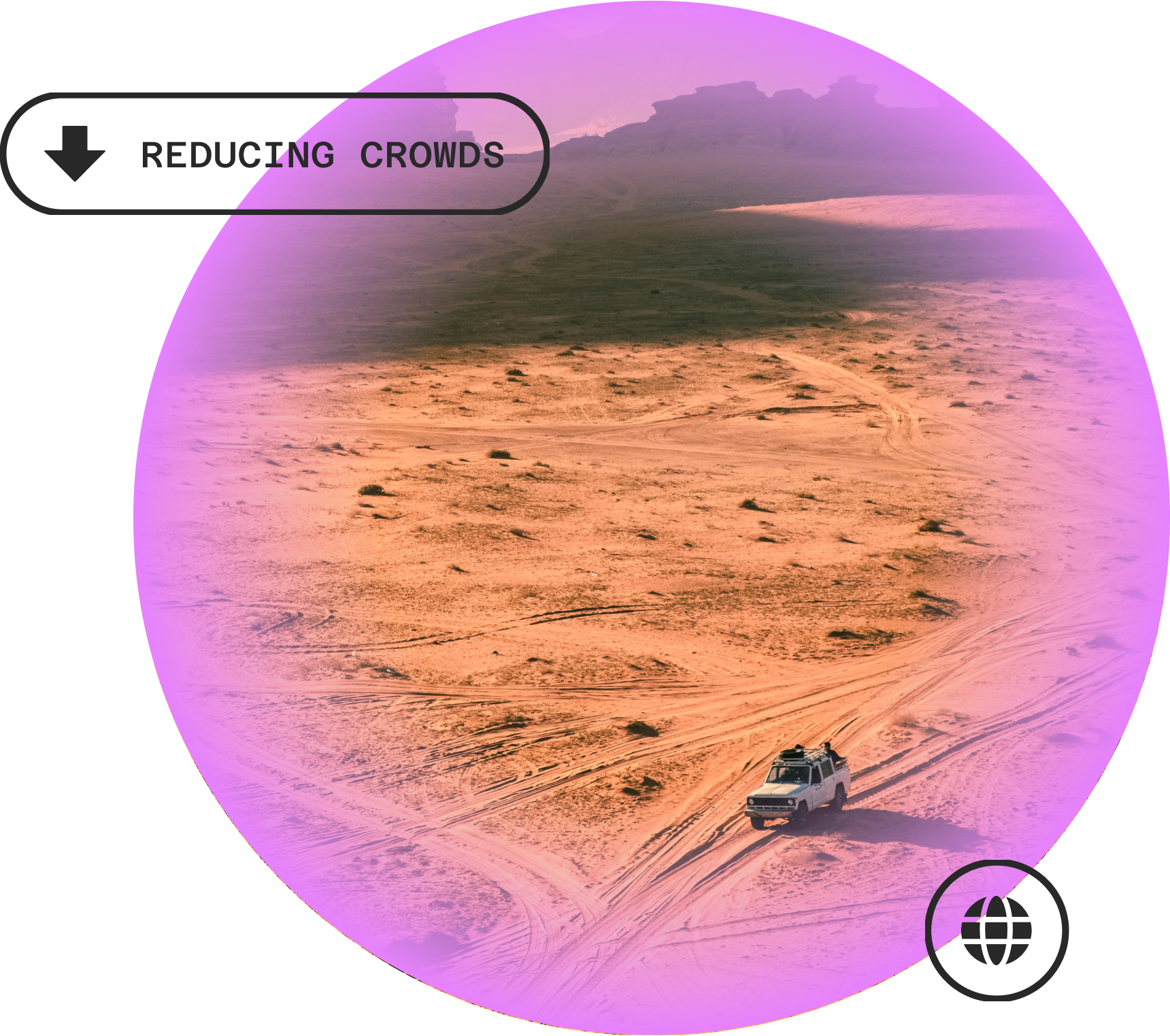
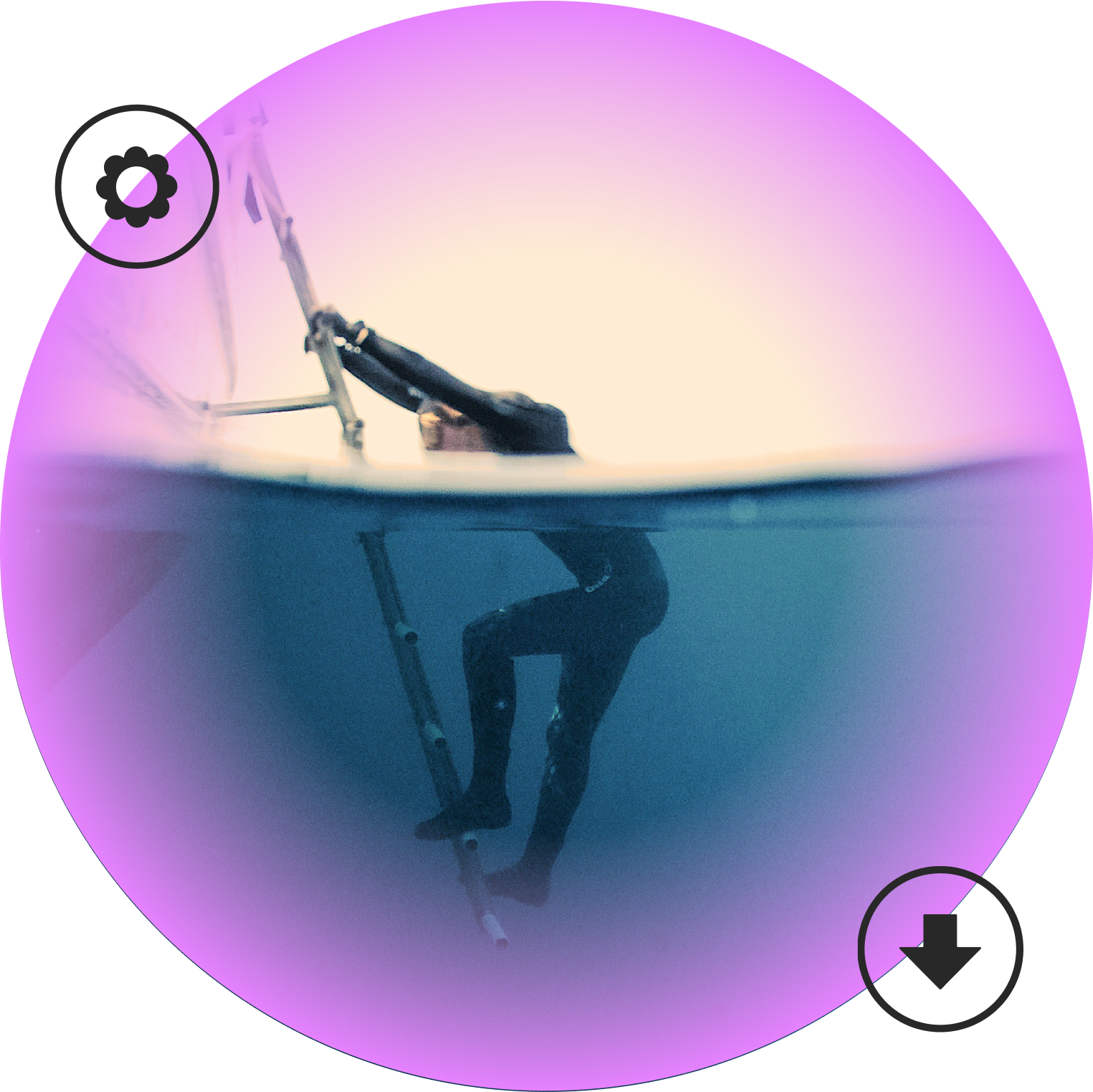
Travel Operators & Advisors
Hotels

Our methodology & approach
We don't do macro-economic models or visitor surveys. Instead we combine alternative data with animations and visualisations that identify, explain and communicate the trends that others find difficult.
What’s alternative data?
Simply put, alternative data is data gathered from nontraditional sources. So instead of conducting visitor perceptions surveys for example, we analyse review data and visitor traffic. Alternative data captures things like web traffic, social media engagement and sentiment, geolocation data, weather and customer ratings.
What’s wrong with the normal stuff?
To understand crowds, carbon emissions and social impact of tourism, we need more than perceptions surveys and financial data. We need systems that are fast and responsive. Ones that help decision-makers make informed decisions with near-real-time simulations.
So do you even use traditional data?
Yes. To build out our models, we combine alternative data with traditional data like visitor arrivals and tourism receipts to generate a more comprehensive analysis. We also reference peer-reviewed academic research and test all of our models against standardised systems.
How do you present and deliver the data?
With stunning animations and visualisations that will make your head explode. We don’t do jargon and we don’t produce 200-page reports. You can hire every other consultant for that.

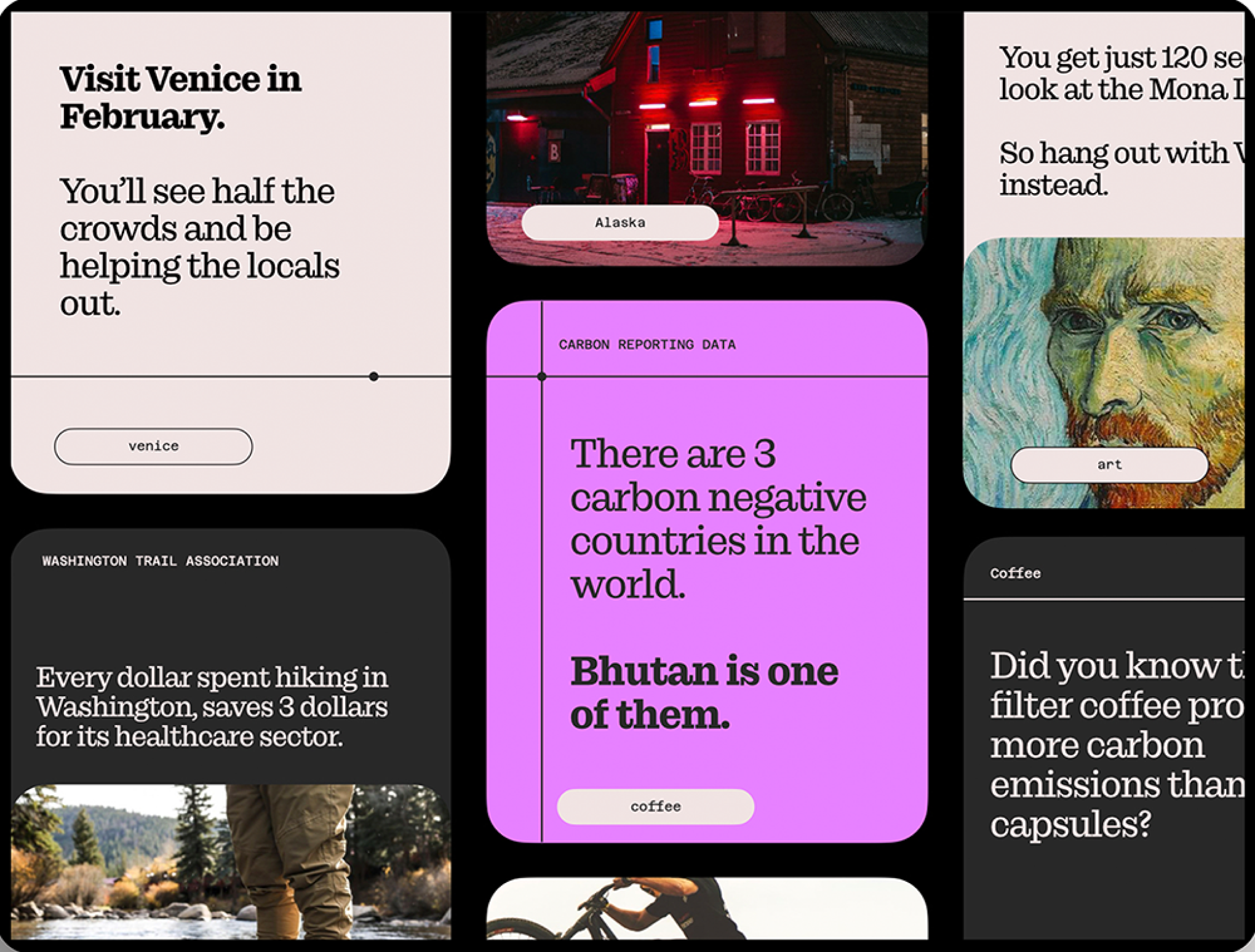
Our technology
We have a novel approach to impact modelling in travel and tourism: we don't use surveys. Instead, we've developed the DataByte.
All of Equator's systems are built using a combination of advanced statistical micro-models, vector-based search and retrieval augmented generation (RAG). We call this technology DataBytes. They're a critical part of our system that give Equator a fast, scalable solution to modelling the dynamics of travel and tourism.
To date, Equator has built over 40 DataByte models. We've identified short-term rental density issues, and the pressures placed on local housing; city-level mapping for destinations concerned about overtourism; carbon models for tourism activities such as hot-air ballooning and jet-skiing, and; demand-models for destinations that observe Ramadan.
- They provide data in near-real time: using publicly available, alternative data sources, Equator can re-run models and ingest new data to identify trends and patterns in tourism dynamics quickly. On July 1st, 2022, we predicted that Porto's lodging sector would exceed its 2019 records for the month of June. Four months later, following the publication of their accommodation survey, Portugal's Hotel Association confirmed that was the case.
- They're scalable. DataBytes provide a single frame of reference that can be used to benchmark performance across destinations, companies and systems. This means Equator can offer clients a way comparing Scope 3 carbon emissions of tours, or indices to compare short-term rental pressures.
- They update automatically. Once the models are built and products are loaded into the system, Equator can update the models at relatively low cost. So if a tour operator changes the design of an itinerary, or
Modelling overtourism in porto
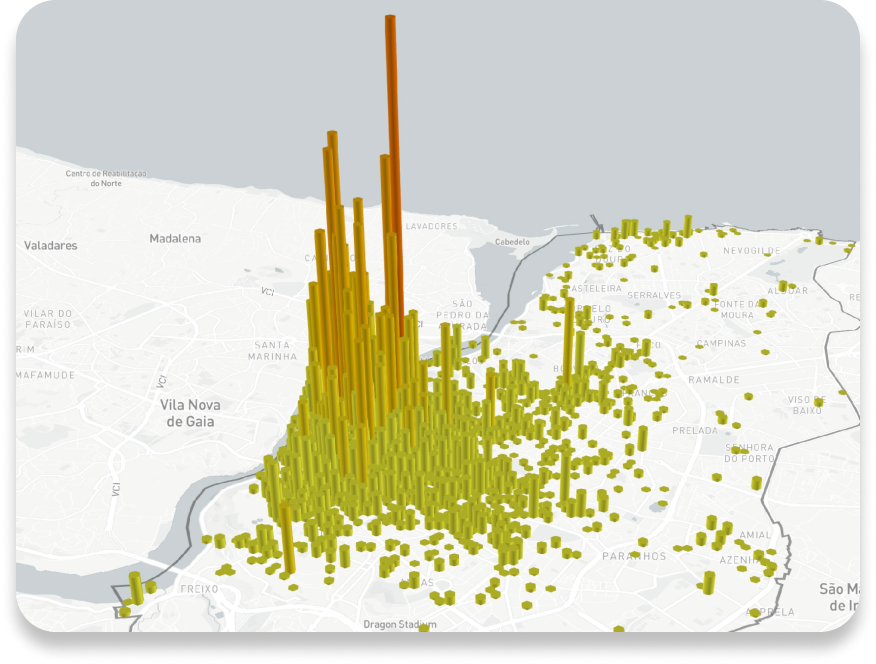
Step One
We aggregate and geo-spatially map review data, traffic, and occupancy (among others) to identify footfall and visitor density at the city level. This is then placed on a near-real time map.
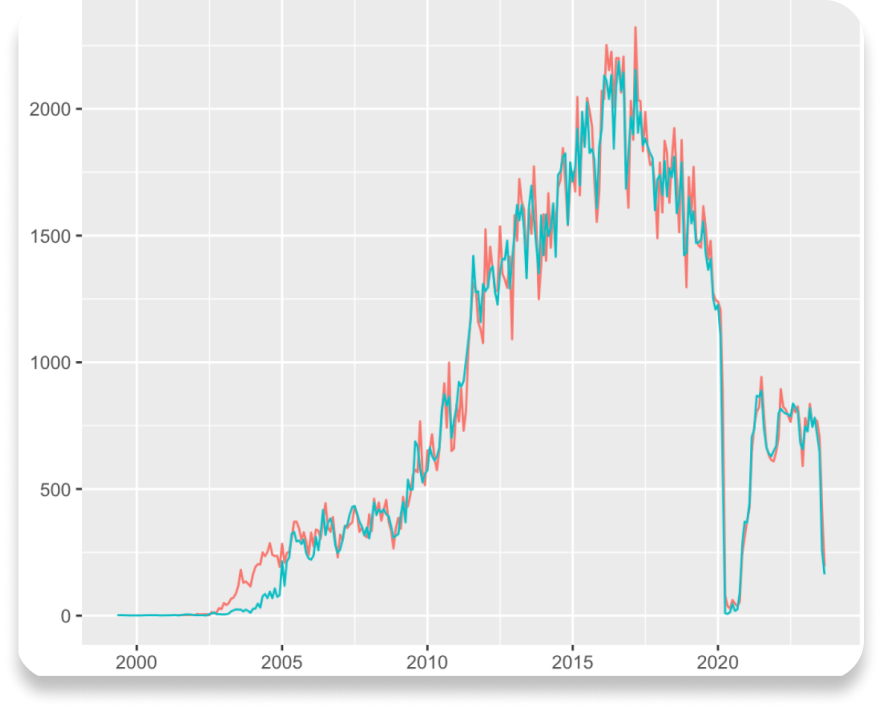
Step Two
We validate the models against available studies and existing government or peer-reviewed data to ensure the validity of the model. These are updated constantly.
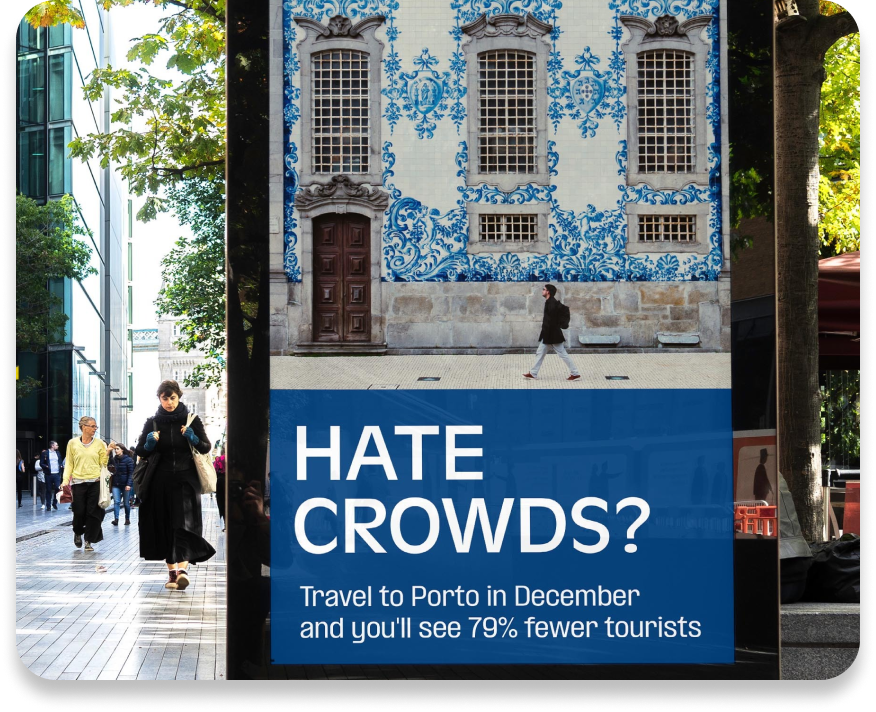
Step Three
We use vector-based search & LLMs to translate the data and dynamics into simple, relatable insights relevant to our users, whether they're destinations or travel companies.